Microservice Architecture
Supported by KongMy presentations
Since early 2012, I’ve given numerous presentations on microservices and related topics. Here are a few of them. These presentations cover the following topics.
- Overview of the microservice architecture
- Designing a microservice architecture
- Service collaboration patterns in a microservice architecture
- Documenting a microservice architecture
- Migrating a Monolith to Microservices
Overview of the microservice architecture
Jfokus: Cubes, Hexagons, Triangles, and More: Understanding Microservices
This presentation that I gave at JFokus 2020 is a great overview of the microservice architecture.
There is no such thing as a microservice!
This presentation defines the microservice architecture.
Modular monoliths and microservices: architectural patterns for rapid, reliable, frequent and sustainable development
In this presentation, I describe loose coupling and modularity and why they are is essential. You will learn about three architectural patterns: traditional monolith, modular monolith and microservices. I describe the benefits, drawbacks and issues of each pattern and how well it supports rapid, reliable, frequent and sustainable development. You will learn some heuristics for selecting the appropriate pattern for your application.
Designing a microservice architecture
Using patterns and pattern languages to make better architectural decisions
In this presentation, which I gave at the O’Reilly Software Architecture Superstream: Software Architecture Patterns, I describe the microservices pattern language. I also describe how thinking with the pattern mindset - context/problem/forces/solution/consequences - leads to better technical decisions.
QCONSF 2022: Dark Energy, Dark Matter and the Microservices Patterns?!
In this presentation, I describe how dark energy and dark matter are excellent metaphors for the competing forces (a.k.a. concerns) that must be resolved by the microservices pattern language. You will learn that dark energy, which is an anti-gravity, is a metaphor for the repulsive forces that encourage decomposition into services. I describe how dark matter, which is an invisible matter that has a gravitational effect, is a metaphor for the attractive forces that resist decomposition and encourage the use of a monolithic architecture. You will learn how to use the dark energy and dark matter forces as guide when designing services and operations.
QConPlus 2021: Takeout burritos and minimizing design-time coupling in a microservice architecture
I gave this presentation at QConplus 2021. It illustrates how to design loosely coupled services using the problem of ordering burritos.
Service collaboration patterns in a microservice architecture
Dark energy, dark matter and microservice architecture collaboration patterns
In this presentation, I describe how to design system operations that span services using microservice architecture collaboration patterns: Saga, Command-side replica, API composition, and CQRS patterns. I describe how each of these patterns resolve the dark energy and dark matter forces differently.
Not Just Events: Developing Asynchronous Microservices
This presentation describes how to implement transactions with sagas, which are sequences of local transactions coordinated using messages. You will learn how to implement queries using Command Query Responsibility Segregation (CQRS), which uses events to maintain replicas, and will hear about the key role messaging plays in a microservice architecture.
Managing data consistency in a microservice architecture using Sagas
This presentation is a more in depth look at using sagas to maintain data consistency in a microservice architecture.
Events on the outside, on the inside and at the core
This presentation looks at the importance of events and the role that they play in applications.
Documenting a microservice architecture
Using scenarios to reinvigorate your microservice architecture
In this presentation, I’ll describe techniques for creating minimal yet effective documentation for your application’s microservice architecture. In particular, you will learn how documenting scenarios can bring your architecture to life.
Adopting the microservice architecture
Potholes in the road from monolithic hell: Microservices adoption anti-patterns
This presentation covers several anti-patterns of microservices adoption that I’ve observed while working with clients around the world.
Decompose your monolith: Six principles for refactoring a monolith to microservices
This presentation describes six principles for refactoring a monolith to a microservice architecture.
Considering Migrating a Monolith to Microservices? A Dark Energy, Dark Matter Perspective
This presentation describes the dark energy and dark matter forces (a.k.a. concerns) that you must consider when deciding between the monolithic and microservice architectural styles. You will learn about how well each architectural style resolves each of these forces. I describe how to evaluate the relative importance of each of these forces to your application. You will learn how to use the results of this evaluation to decide whether to migrate to the microservice architecture.
About www.prc.education
www.prc.education is created by Chris Richardson, software architect, creator of the original CloudFoundry.com, and author of Microservices Patterns. Chris advises organizations on modernization, architecture, and building systems that avoid becoming modern legacy systems.
Need help modernizing your architecture?
Avoid the trap of creating a modern legacy system — a new architecture with the same old problems.
Contact me to discuss your modernization goals.
Microservices Patterns, 2nd edition
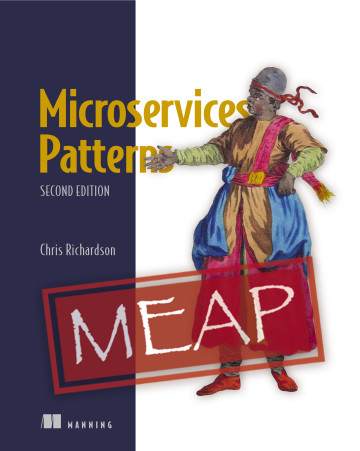
I am very excited to announce that the MEAP for the second edition of my book, Microservices Patterns is now available!
Learn moreASK CHRIS
Got a question about microservices?
Fill in this form. If I can, I'll write a blog post that answers your question.
NEED HELP?

I help organizations improve agility and competitiveness through better software architecture.
Learn more about my consulting engagements, and training workshops.
LEARN about microservices
Chris offers numerous other resources for learning the microservice architecture.
Example microservices applications
Want to see an example? Check out Chris Richardson's example applications. See code
Virtual bootcamp: Distributed data patterns in a microservice architecture

My virtual bootcamp, distributed data patterns in a microservice architecture, is now open for enrollment!
It covers the key distributed data management patterns including Saga, API Composition, and CQRS.
It consists of video lectures, code labs, and a weekly ask-me-anything video conference repeated in multiple timezones.
The regular price is $395/person but use coupon OFFEFKCW to sign up for $95 (valid until Sept 30th, 2025). There are deeper discounts for buying multiple seats.
Learn how to create a service template and microservice chassis
Take a look at my Manning LiveProject that teaches you how to develop a service template and microservice chassis.

BUILD microservices
Consulting services
Engage Chris to create a microservices adoption roadmap and help you define your microservice architecture,
The Eventuate platform
Use the Eventuate.io platform to tackle distributed data management challenges in your microservices architecture.

Eventuate is Chris's latest startup. It makes it easy to use the Saga pattern to manage transactions and the CQRS pattern to implement queries.
Join the microservices google group
Topics
Note: tagging is work-in-process
Cynefin · DDD · GitOps · Microservices adoption · ancient lore · anti-patterns · api gateway · application api · application architecture · architecting · architecture · architecture documentation · assemblage · automation · beer · books · build vs buy · containers · culture · dark energy and dark matter · decision making · deliberative design · deployability · deployment · deployment pipeline · design-time coupling · developer experience · development · devops · docker · eventuate platform · evolvability · fast flow · genAI development · generative AI · glossary · health · hexagonal architecture · idea to code · implementing commands · implementing queries · inter-service communication · kubernetes · loose coupling · manning publications · microservice · microservice architecture · microservice chassis · microservices adoption · microservices platforms · microservices rules · microservicesio updates · modifiability · modular monolith · multi-architecture docker images · observability · pattern · pattern language · patterns · refactoring · refactoring to microservices · resilience · runtime coupling · sagas · scripting · security · service api · service architecture · service blueprint · service collaboration · service design · service discovery · service granularity · service template · socio-technical architecture · software delivery metrics · success triangle · survey · tacos · team topologies · technical debt · testability · testing · transaction management · transactional messaging · wardley mapping
The patterns
Application architecture patterns
Decomposition
- Decompose by business capability
- Decompose by subdomain
- Self-contained Servicenew
- Service per teamnew
Refactoring to microservicesnew
Data management
- Database per Service
- Shared database
- Saga
- Command-side replica
- API Composition
- CQRS
- Domain event
- Event sourcing
Transactional messaging
Testing
Deployment patterns
- Multiple service instances per host
- Service instance per host
- Service instance per VM
- Service instance per Container
- Serverless deployment
- Service deployment platform
Cross cutting concerns
Communication style
External API
Service discovery
- Client-side discovery
- Server-side discovery
- Service registry
- Self registration
- 3rd party registration
Reliability
Security
Observability
- Log aggregation
- Application metrics
- Audit logging
- Distributed tracing
- Exception tracking
- Health check API
- Log deployments and changes
UI patterns

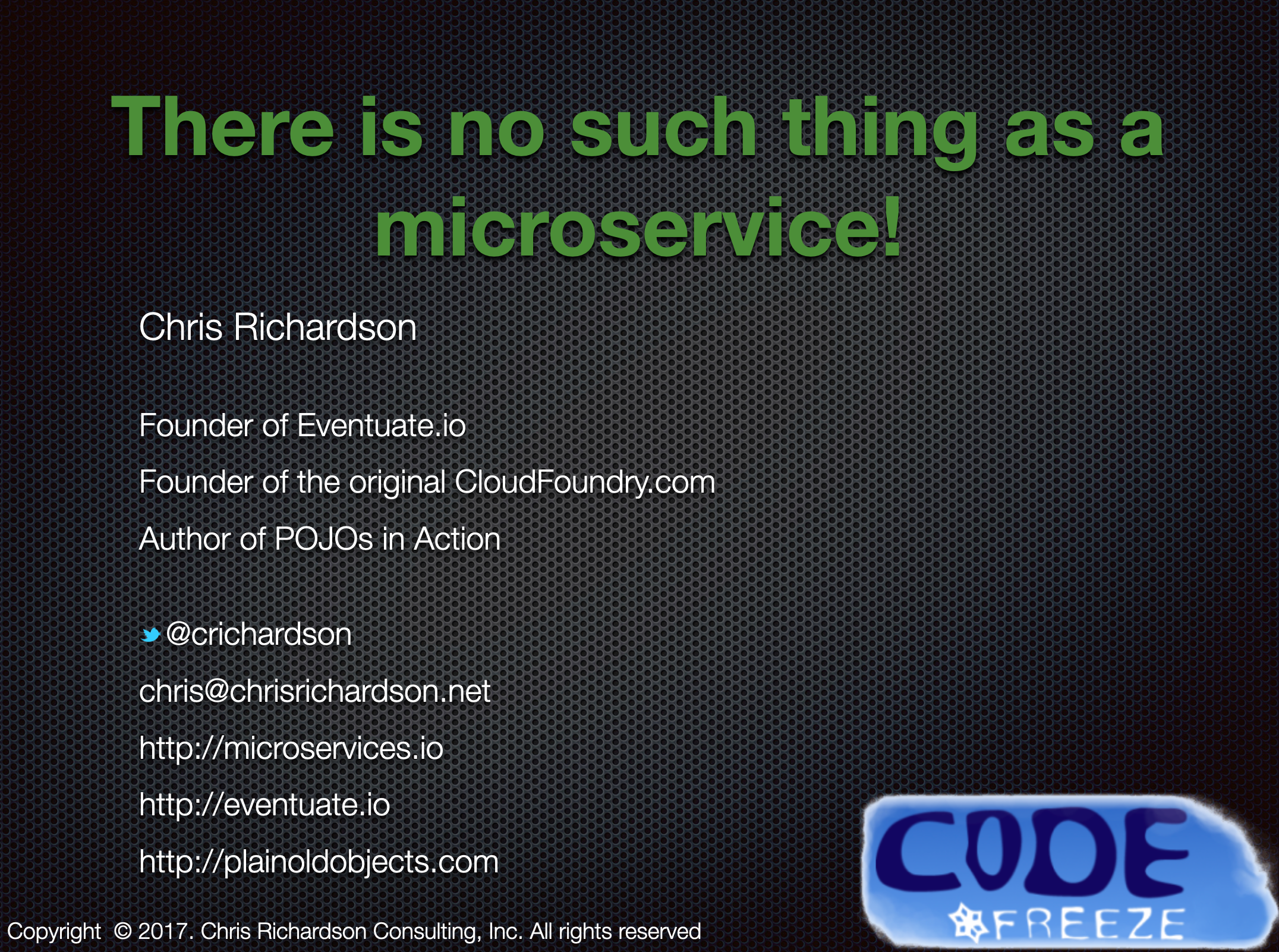
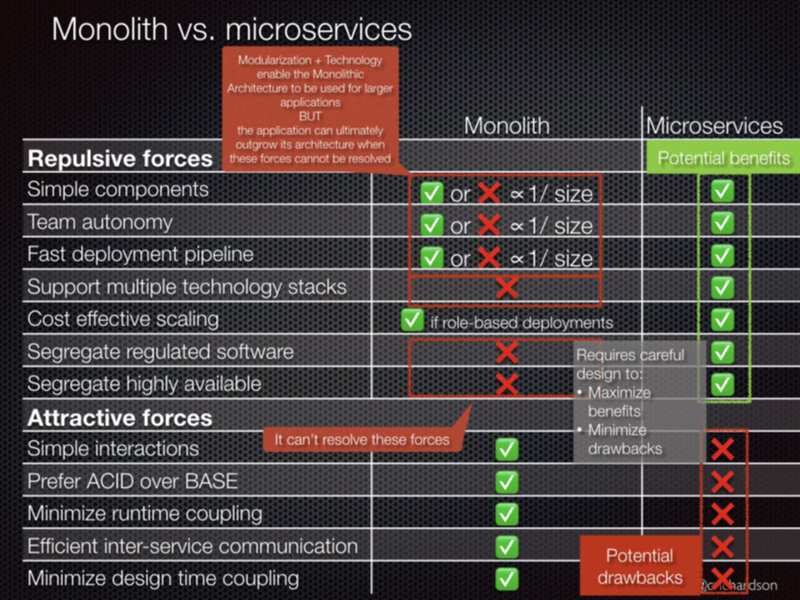
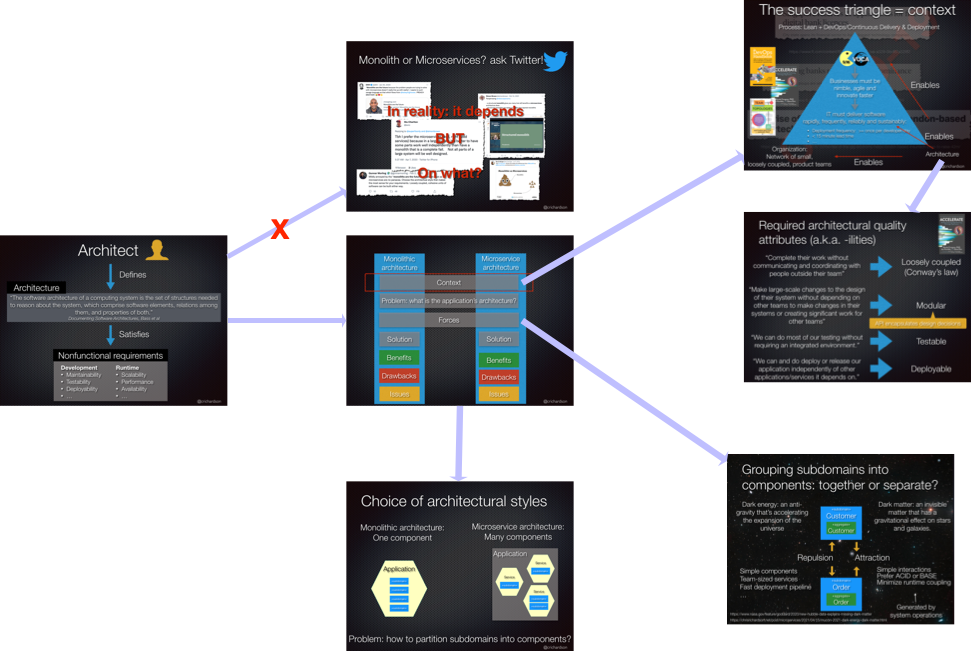
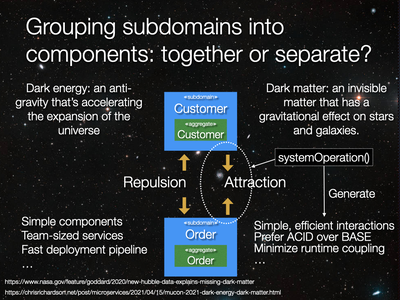

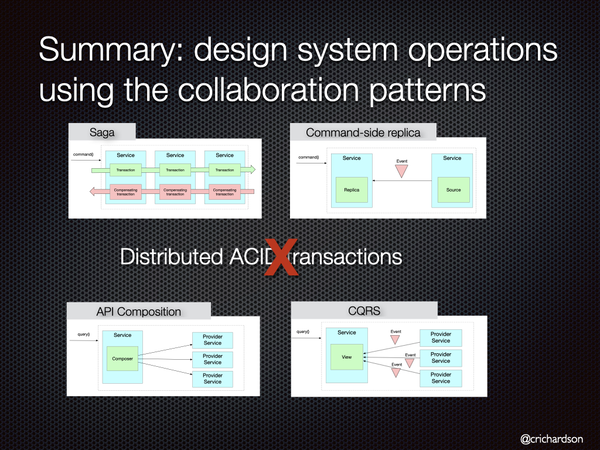



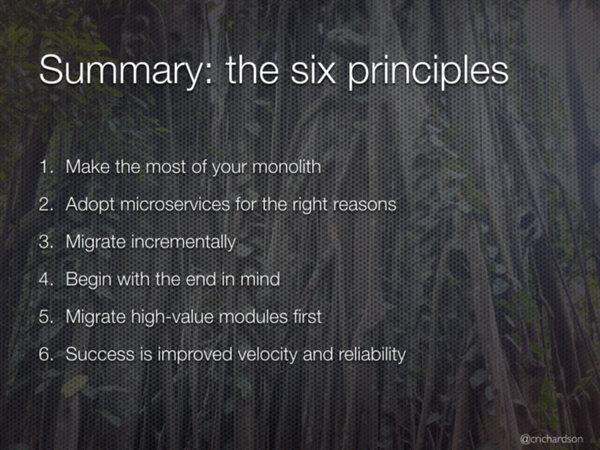
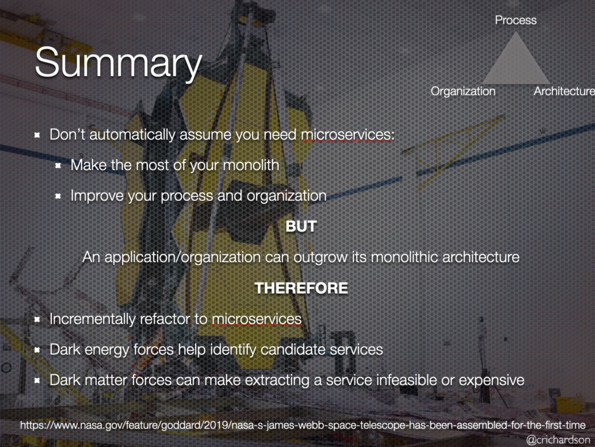
 Premium content now available for paid subscribers at
Premium content now available for paid subscribers at 

